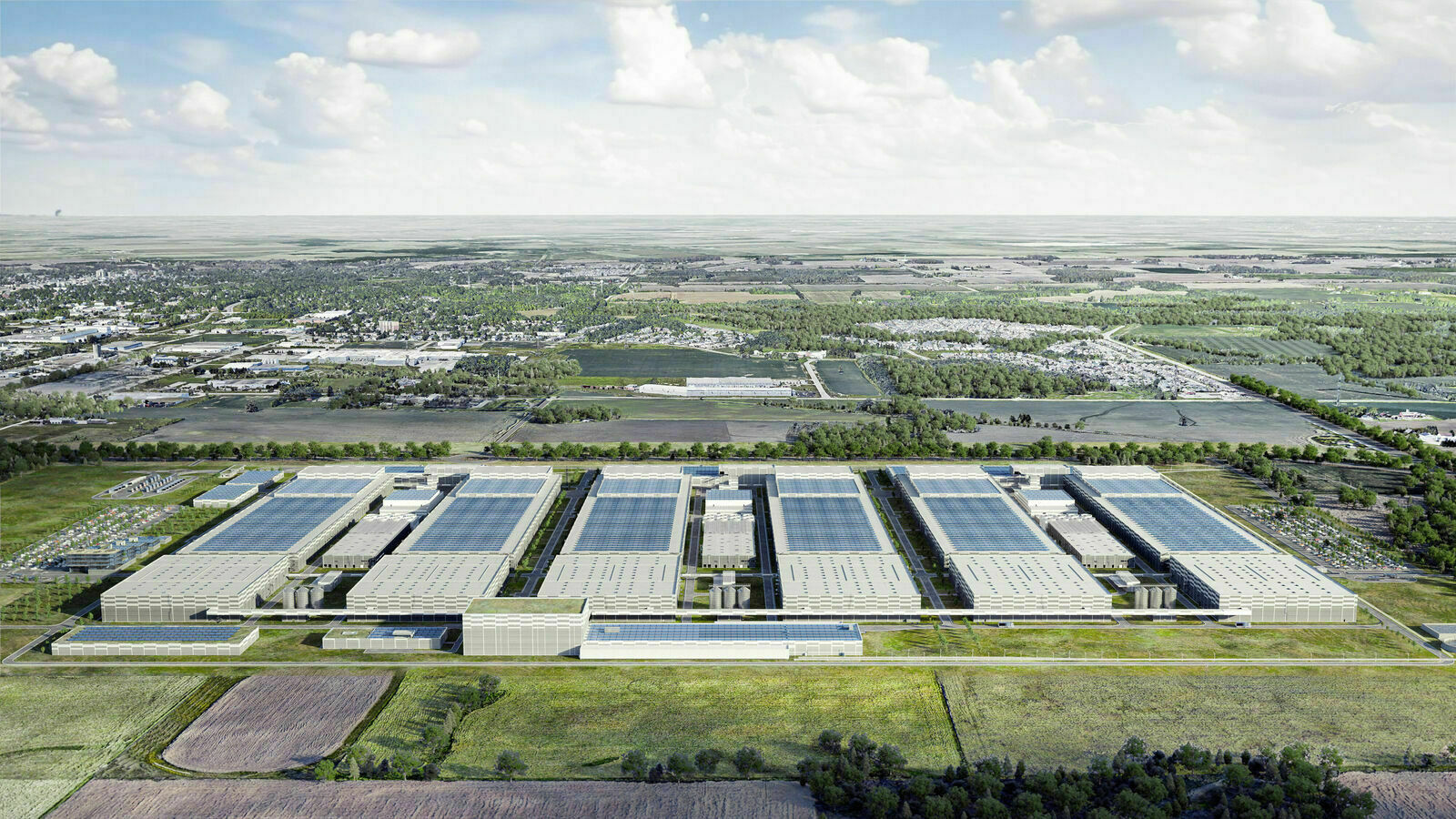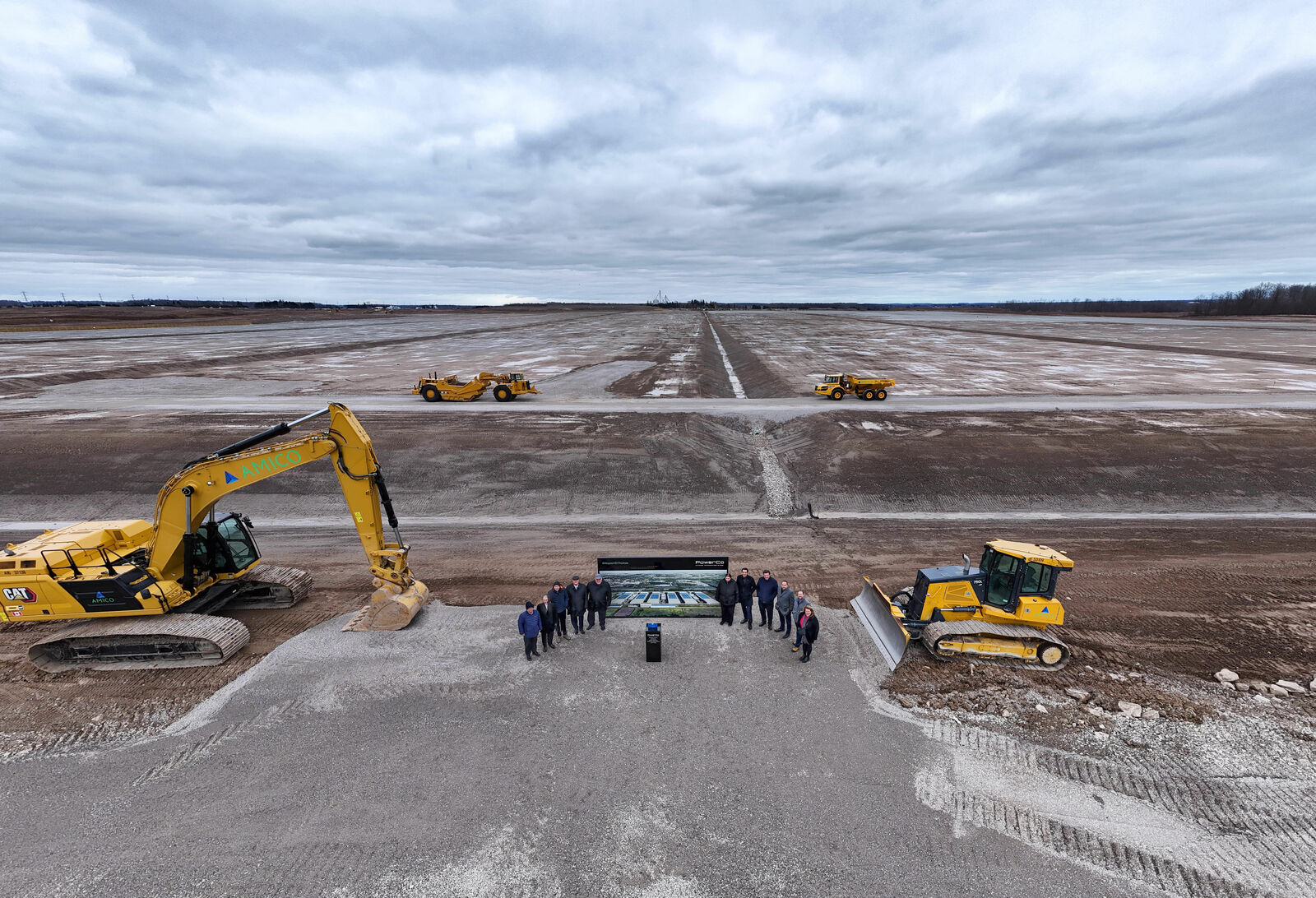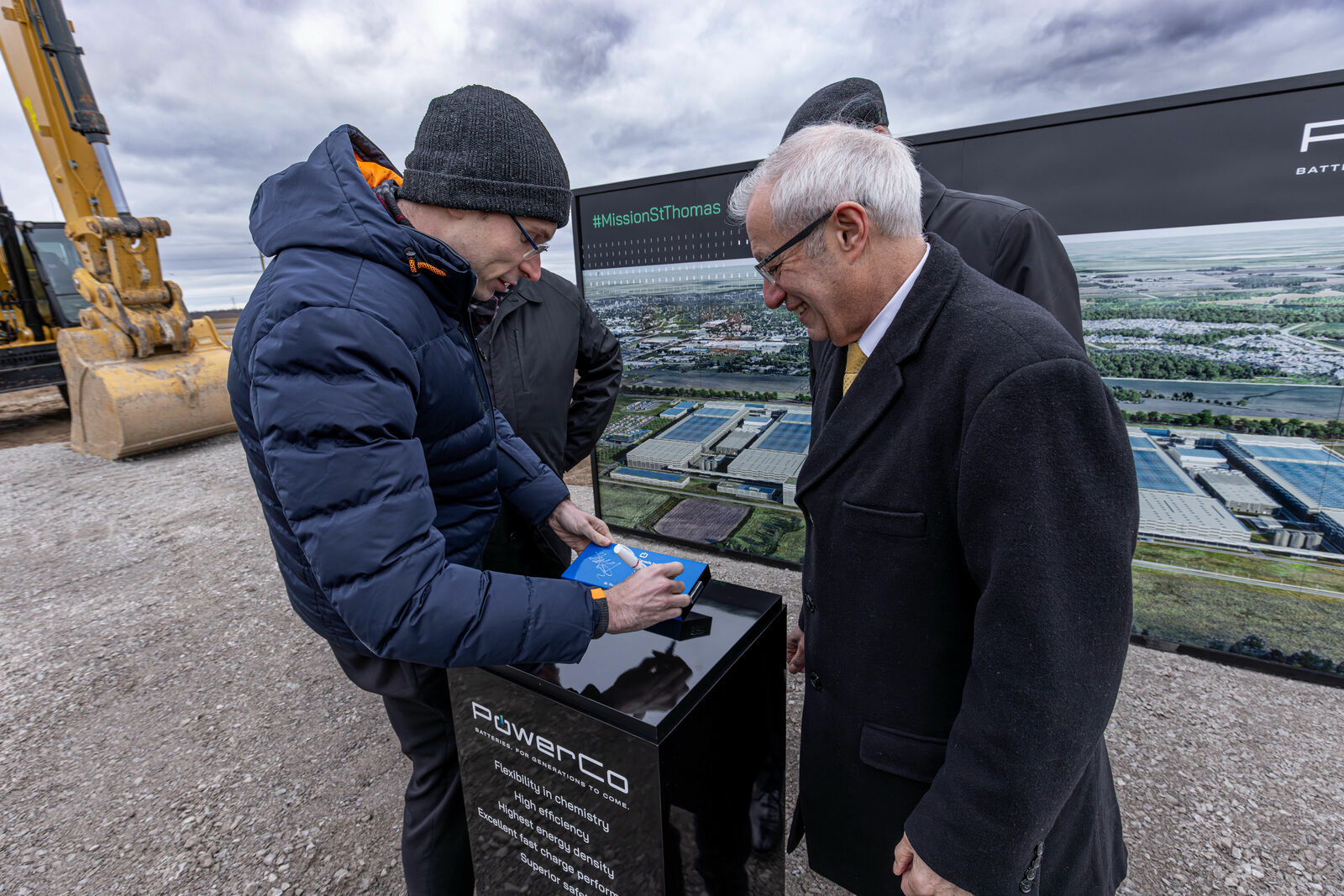St. Thomas is the company’s first overseas gigafactory for cell manufacturing and will equip the Group brands’ BEVs in the North American region with cutting-edge unified cells, a new technology designed for cost-efficient scale production.
St. Thomas will also be the largest PowerCo gigafactory to date with an annual production capacity of up to 90 GWh in the final expansion phase. The planned investment of up to €4.8 billion / CAD$ 7 billion by 2030 has the potential to create up to 3,000 highly skilled jobs at the factory along with thousands of indirect jobs within the region. Furthermore, the cell factory will be supplied with CO₂-free energy.
PowerCo-COO Sebastian Wolf seized the opportunity to reveal the name of the new Canadian entity: PowerCo Canada Inc., headquartered in St. Thomas, Ontario, will steer all activities of the battery company in North America. Thereby, PowerCo complements the establishment of a Canadian EV battery supply chain and supports the 2030 Emissions Reduction Plan of the Canadian Government. On a local level, PowerCo will work closely with the province of Ontario and the city of St. Thomas, along with local colleges to prepare our Canadian labour force for the tasks and processes of the new industry.
Vic Fedeli, Ontario’s Minister of Economic Development, Job Creation and Trade, commented: “This important step forward is a sign of the continued progress being made by PowerCo Canada Inc., working in tandem with support from the Government of Ontario. When completed, this gigafactory will represent a significant milestone in the end-to-end auto and EV battery supply chain growing across the province. We also welcome the news that PowerCo Canada Inc. has begun local hiring and setting up its resident office in St. Thomas. We will continue to monitor the progress of this project with eager anticipation.”
Joe Preston, Mayor of the City of St. Thomas, speaking at the same occasion: “I'm excited that Volkswagen has selected St. Thomas to be a key part of the plan for North America as a hub for building the cars of the future. This investment by PowerCo is not only a game changer for Ontario’s EV vision, but also a huge boost to our community and the hardworking families that call St. Thomas and Elgin County home. Our region will surely prosper from this for decades to come.”
The cell factory with a projected start of production in 2027 is part of a larger plan that Volkswagen and PowerCo agreed upon with Canadian Prime Minister Justin Trudeau's government in August of 2022. The Memorandum of Understanding signed at the time focusses on battery value creation and raw material security in order to help promote e-mobility in the country.
The decision to expand PowerCo SE’s cell production network to Canada is further proof of the ambitious growth strategy of the Volkswagen Group in North America. This includes the introduction of a broad portfolio of full-electric vehicles in the United States and Canada by 2030, the expansion of Electrify America’s coast-to-coast charging network in the U.S. and Canada as well as the announcement of the return of the iconic Scout brand to deliver its first all-electric vehicles in 2026.
Current PowerCo activities include setting up the local office in downtown St. Thomas, continuing local hiring and signing the first servicing agreements with local providers such as the Canadian electricity transmission and distribution service provider Hydro One, Ontario-based Project Management Consultant Turner & Townsend and General Designer WSP. Further, the design for the expansion of local highway and road infrastructure is on track and the necessary environmental assessments have been initiated.
In order to set up robust supply chains and attract suitable additional suppliers to St. Thomas, a first webinar was hosted by the Ontario Ministry of Economic Development in close liaison with the PowerCo procurement department. 500 participants were introduced to the PowerCo sourcing strategy, as well as location advantages and potentials.
The cell factory is being built over an area of around 370 acres (150 hectares), which corresponds to more than 210 soccer or football fields. The entire industrial and supplier park amounts to 1,500 acres (600 hectares). Its strategic location about 30 km south of London, Ontario, is at the heart of the Great Lakes Automotive Corridor and near major cities such as Toronto and Detroit. That gives PowerCo prime access to the regional research and innovation cluster, talented workforce, good transport infrastructure and established supply chains.













